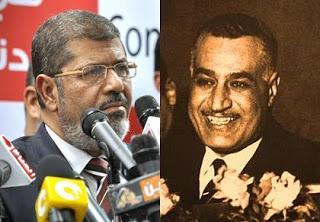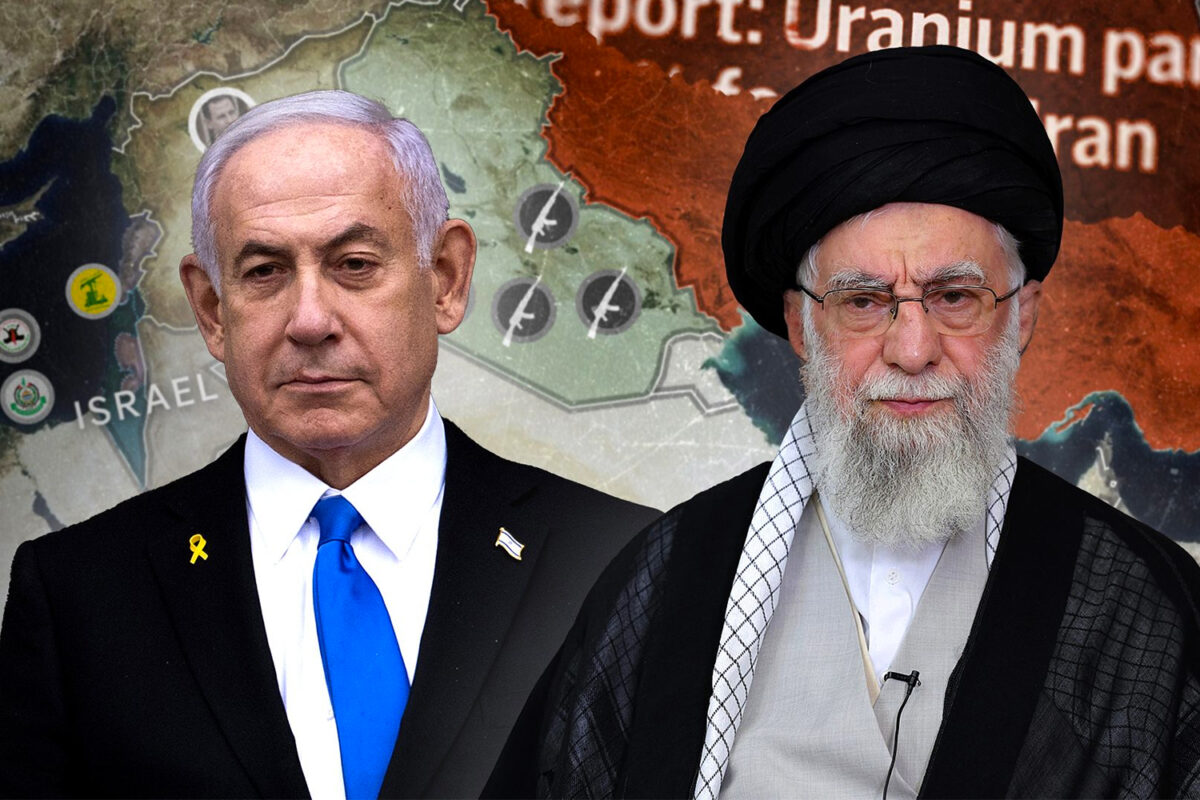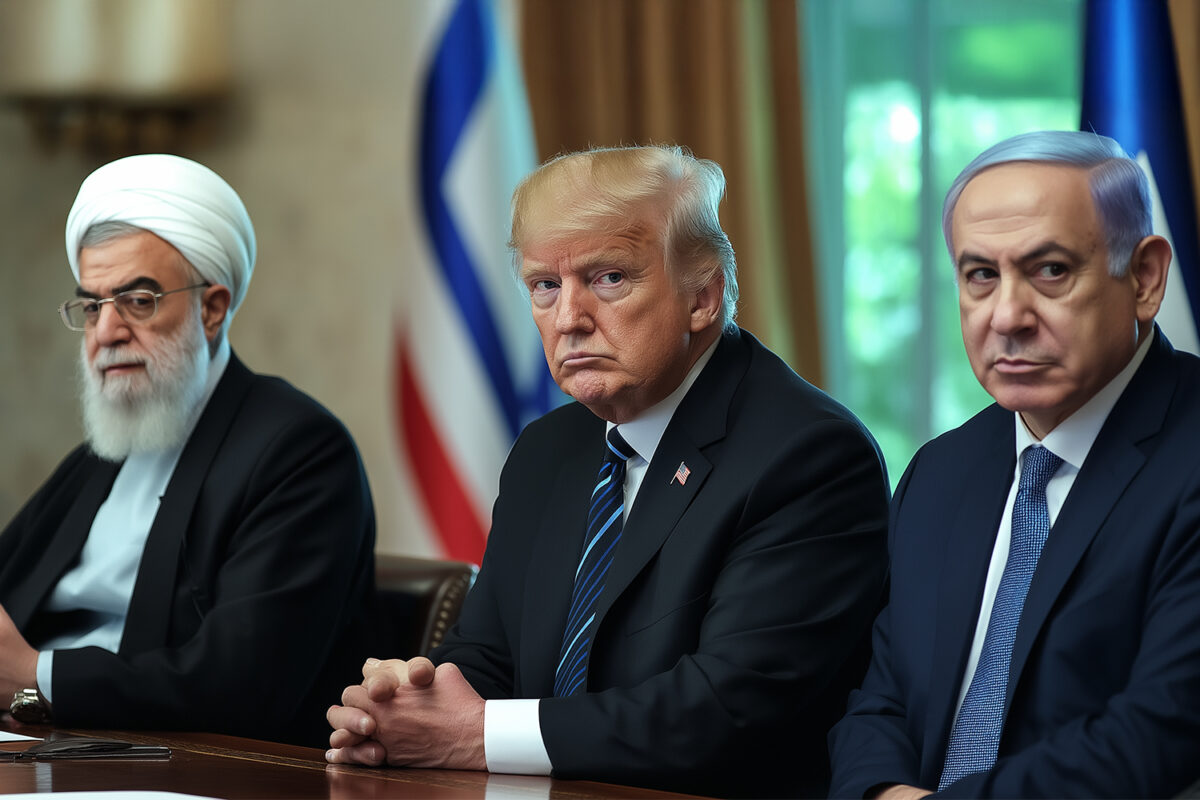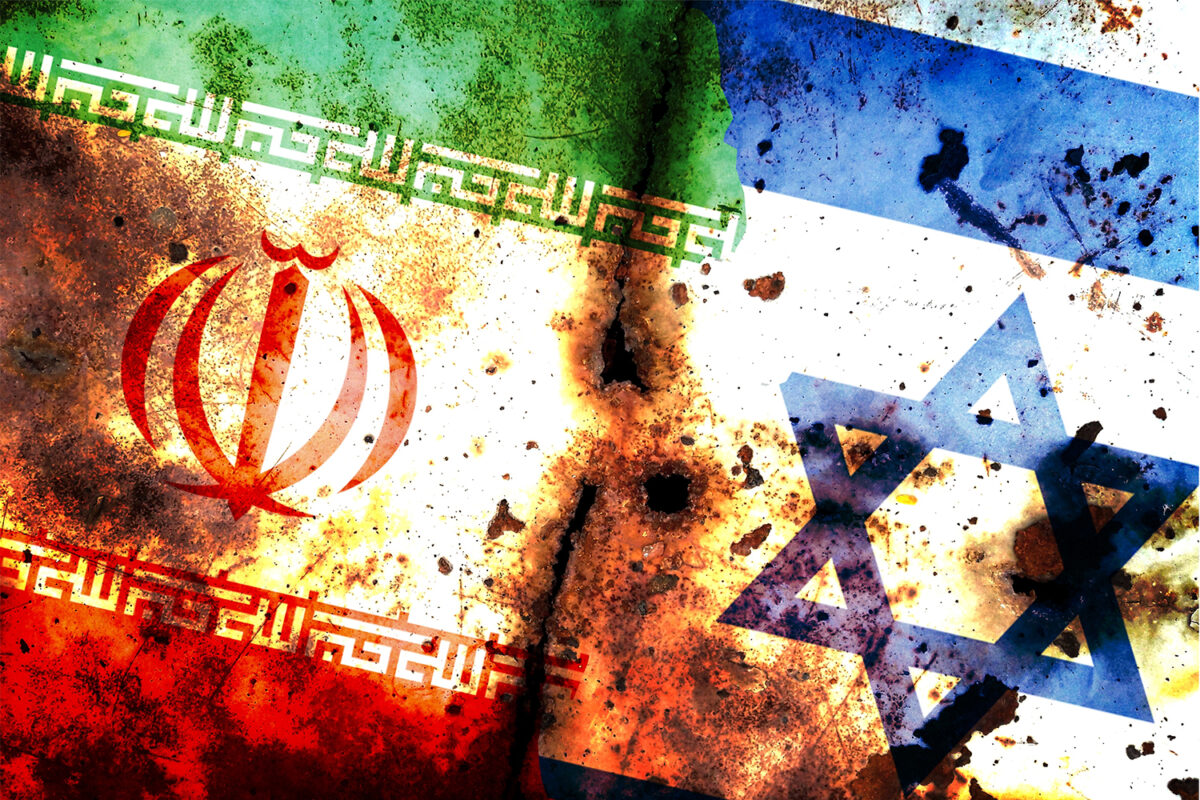[1] http://www.reuters.com/article/2012/08/12/us-egypt-army-tantawi-idUSBRE87B0IQ20120812
[2] http://www.cigionline.org/blogs/wealth-and-international-politics/whats-behind-egypts-military-shake-up
[3] http://online.wsj.com/article/SB10000872396390444184704577587422651692212.html
[4] http://voices.washingtonpost.com/spy-talk/2011/01/the_cias_complicated_relations.html
[5] http://www.voanews.com/content/change-atop-egyptian-military-no-surprise-to-us/1485530.html
[6] http://www.nationalreview.com/phi-beta-cons/44311/u-maryland-puts-it-muslims-worldwide
[7] http://www.nytimes.com/2012/08/31/world/middleeast/selected-excerpts-of-president-mohamed-morsis-speech.html
* Image partly by Jonathan Rashad (Flickr) [CC-BY-2.0 (http://creativecommons.org/licenses/by/2.0)], via Wikimedia Commons
By Abu Anas
There was a lot of buzz in the media, this past August, due to the retirement order of the top two military leaders of Egypt’s army, Defense Minister Field Marshal Hussien Tantawi and Chief of Army Staff Lt. General Sami Annan.[1] The astonishment was due to the fact that the newly elected president who has set the order, Mohammed Morsi, was from an Islamist movement, The Muslim Brotherhood, which had lots of friction with the military since Nasser’s time and was thought to be incapable of such radical change.
During most of Egypt’s modern history, since the coup by Gamal Abdel Nasser in 1952, the country has been in control and directly ruled by military personnel. First it was Nasser, then Anwar El-Sadat who was finally followed by the recently deposed Hosni Mubarak, all being from the military. The power resided within the military institution that controlled every aspect of state affairs, as such simple elections would not transfer power automatically to a civilian leadership overnight. It is well understood within the circles of think tanks and policy makers that such a move of removing the heads of the military in a situation like Egypt cannot be done without the consent of the military junta represented by the Supreme Council of the Armed Forces (SCAF).[2] That’s why some military analysts have concurred that the new appointment of the defense minister is such that it “reflects the staying power of Mr. Mubarak’s old military order.“[3]
Nasser, even though outwardly was anti-West, was actually a US ally that helped spread American influence in the Middle East, as has been confirmed by the CIA and its covert operatives later on.[4] The US has been always in-sync with the Egyptian administrations since then so they secure their interests in the region. The US would be aware of any move that might destabilize the current regime and status quo inside Egypt. Surely enough, the State Department knew about the changes within the military establishment before they happened as has been reported by its spokeswoman saying, “Hilary Clinton knew of ongoing discussions about a new defense team and was told during talks with President Morsi in Cairo last month that the change would be made ‘at an appropriate moment.’“[5] Commenting on the new appointed personnel for the defense ministry and army, the US administration said that, “Egypt’s new top military officer is a known commodity in Washington.“[3]
After around 30 years of tyrannical rule by Mr. Mubarak, as was the case in many Middle Eastern countries, people were fed up due to the political, economical and social repression, which created major instability towards the regime and to US foreign policy in the region. Political Islam was on the rise due to its natural affinity with the majority Muslim populace and due to the essence of Islam’s call to justice, mercy and ruler accountability which were all missing in people’s lives.[6] The US had to come up with an alternative in such a volatile situation by cooperating with “liberal” Islamists, like the Muslim Brotherhood, and help them get to power as long as they serve US interests. The secular US-allied military leadership would continue to be America’s insurance policy against any Brotherhood misbehavior, and the secular political parties would act as a check and balance upon them.
The last regime under Mubarak was busy dealing with internal strife against militants after the assassination of El-Sadat and during the tourism killings in the 1990’s, which rendered it unable to continue playing its important strategic role in the region. Egypt was transformed from being the centerpiece of the Arab world during Nasser to a deteriorating police state spending most of its resources wrestling with its own people. Ever since the internal stability has been secured, the US is now trying to revive that lost Egyptian “Nasser” role within the Arab world through the Muslim Brotherhood. Morsi has mentioned “Gamal Abdel Nasser” in his speech during his participation in the Non-Aligned Movement meeting in Tehran, August 30th, and said that “The new Egypt … is seeking a … real participation in the international affairs.“[7]
This pragmatic approach instituted by the Brotherhood comes at a time where their interests have intersected with those of the US resulting in this new marriage between America and the Islamist (though liberal) movement. To be clear, Morsi does not hold power in Egypt since the real power brokers are the military junta who have retreated behind the scene and left the daily running of the state to the Brotherhood. The Brotherhood’s foreign policy, just like any other satellite country, revolves around and is directly tied to a global power, in this case the US. If indeed, the Brotherhood are promising a “new” Egypt that can really play an independent and active role in the world, then it is imperative that US hegemony over Egypt is stopped, otherwise, Morsi will indeed become a Nasser, just another pawn within the US grand strategy.






4 comments
AbuAli
20th September 2012 at 3:55 am
Salam
The article quote:
“The US had to come up with an alternative in such a volatile situation by cooperating with “liberal” Islamists, like the Muslim Brotherhood, and help them get to power as long as they serve US interests”
I have a disagreement on the issue
1.the US wanted Ahmed Shafiq to be the president and they showed there complete support to Ahmed Shafiq-financially and politically.(even by buying votes).
2.Muslim brotherhood is known to be a British agent from long before ,from the time of Hassan-al-Banna.
3.how can we conclude that US helped them to be in power
My personal understanding is that the US was left with no option but to put the check and balance measure from the military junta and the secular group.
And with the recent political actions that are taken by MOhd.Morsi which are in US hegemony shows the weakness of all British Agent in todays world order to the super power.
please do clarify my thoughts,
looking forward for your reply.
Revolution Observer
20th September 2012 at 3:57 am
Wa alaikum assalam Akhi Abu Ali and jak for ur question.
1) The US never wanted Ahmad Shafiq to be president at all, neither the army (SCAF). To understand this point one needs to understand the strategic objectives and interests of the US in Egypt and the region. The filthy tyrannical regimes were very unstable due to the decades of oppression and due to the rise of political Islam which endangered not only the regime itself but the whole region, since the rise of Islam in any country is a red line for the US. The US has been for a while working to intellectually defeat political Islam through preparing the liberal Islamists to take power and convince the Ummah that political Islam is not the solution. Obama said earlier last year during & after the Egyptian revolution that the people need to taste the sweetness of Democracy through experiencing some economical progress. You can see that now the US is forgiving $1 Billion in debt to Egypt and have sent 10 big business negotiators to invest in Egypt for that purpose.
2) The US has been in touch with MB for a long time and Morsi was a professor in California Berkeley, so contact with the MB has been there for a while. It is wrong to say that MB were British agents. MB are pragmatists, so whenever there is benefit to serve their goals they will align themselves, nothing ideological or inherited agency like some of the Gulf rulers and Jordan. MB want to get Islam to power but through this twisted means of serving the world power’s interests. One should stay away from the simplistic approach of setting organizations and personalities in agency boxes due to history only but should reach the conclusion about agency through the tracing of interests and strategic objectives.
3) We know that the US have put them in power by the fact that they reached power! We know SCAF is an American agent, so if the MB have been permitted to be in power, then we know the US is ok with them being there! On the side, you see the economical support the US is giving to them now to help them establish the new democratic Egypt! Since they know MB is still Islamist in nature, they have the army and secularists to be check and balance upon them and not because they are British. The US is so entrenched inside Egypt, Britain as of now having “almost” nothing in there! The US embassy in Cairo is the biggest in the region.
I hope I have been able to shed some light upon the issue you have listed.
wassalamu alaikum,
Abu Anas
Abu Alaa
20th September 2012 at 3:58 am
Salam,
Jazzakallahu Khuran for the article but whenever we are doing political analysis we must collect the facts and then come to a conclusion, not assume a nation has specific strategic objectives and thus it will behave accordingly.
The issue here is that I agree that MB are currently behaving in line with America and this is a big disaster for the Muslim Ummah, but it is not correct to say that America backed them from the outset because of the political evidence during the Egyptian elections.
How did Ahmed Shafiq get nearly 50% of the vote when he was part of Mubarak regime, and people hated him (including the secular opposition). He got this as follows:
1- Huge support in campaignning in the streets by the previous national ruling party. The national party is disbanded but it was clear they were campaigning for Ahmed Shafiq.
2- The secular Media completely supported Ahmed Shafiq and attacked MB saying if they get in power then they there will be war with Israel, they will enforce hijab and ruin toursim. This Media is again controlled by the previous ruling party and America.
3- Ahmed Shafiq spent a lot of money on the villages paying off local governers to get the votes, and this huge amount of money came from the previous ruling party.
Thus it is clear that America backed Ahmed Shafiq but when he failed then they sturck a deal with MB and made sure they toe the American line.
Wasalam
Abu Alaa
Revolution Observer
20th September 2012 at 3:59 am
Br Alaa JAK for ur critique.
All of your points *could* have been valid if your assumption was also correct; that is the elections in Egypt that we both know was run by the same old military regime was not rigged and was transparent. Ahmad Shafiq, the same guy in Mubarak’s filthy government which all of Egypt hated getting ~50% … that is not easily swallowed. Collecting facts is needed, but building them on invalid assumptions is dangerous!
On the other hand, you also made another claim that you tried to support by the 3 points you’ve presented, which is the US wanted Shafiq to win at first. You have made another assumption there; which is if the US supported Shafiq by money, media and the old party people, then the US wants Shafiq to be the president. That is not necessarily correct to conclude that through ur 3 points, and actually is not the case in this situation.
First, it is not in the interest of the US to have a military person who was the prime minster of Mubarak in his last cabinet to be the new leader of the NEW Egypt! He is too old anyway 71 years! As u can see all of the old guys got the boot, so if the US really wanted a guy from the military they would have got a young guy. The US has an abundance of agents in Egypt … a huge pool.
Now, if you remember, the MB and Islamists in general got ~70 of the parliament. Huge success, then few incidents by the MB including them not backing certain protests, being too close to SCAF, and leaving their slogan “Islam is the Solution” degraded their popularity. The US supported Shafiq to tell the Egyptian people, either you choose MB or you get Shafiq! If they wanted him, they would have got him since it is too close anyway, then rigging it with few percent is not that problematic right? But the Egyptians would have not accepted that and the same feeling of oppression would have been there! Unlike Morsi who the Egyptians love and the more the US will support him, he will be another Erdogan.
Last, the US doesn’t make plans last minute! Shafiq lost, ok so we work with the Islamists! That is part of an agenda from before. The US have to decide to deal with the Islamist from beforehand for it to allow them to win, since again they have the army with them.
w’salam.